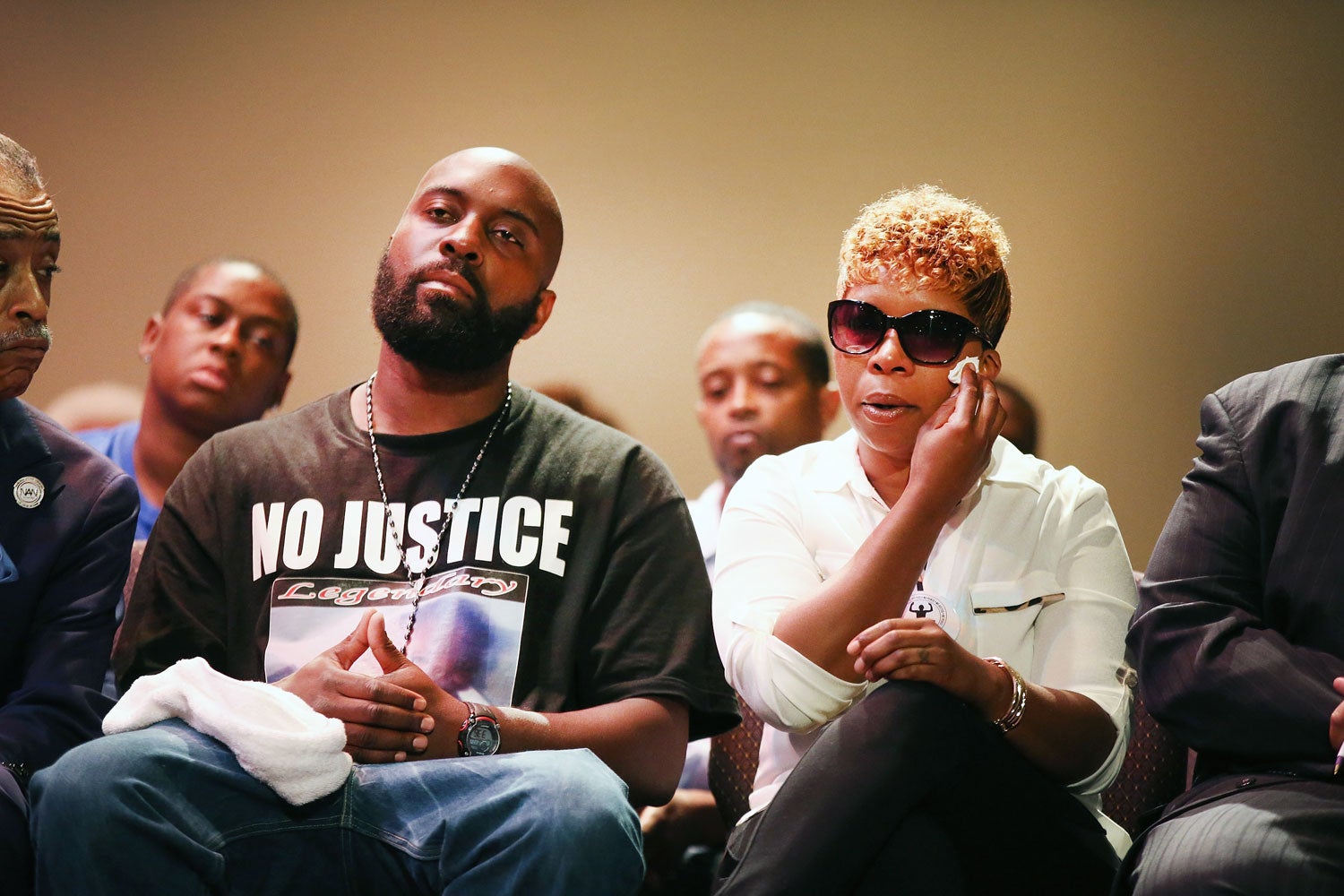
The St. Louis County prosecuting attorney Bob McCulloch will convene a grand jury on Wednesday, August 20 to begin looking into evidence related to Michael Brown’s killing. Here’s what you need to know.
What evidence will the grand jury consider?
Police are only allowed to use deadly force if they reasonably believe they are in danger of imminent death or great bodily injury to themselves or others. The ultimate question in this case will be whether Officer Darren Wilson’s use of force in the killing of 18-year-old unarmed Michael Brown was justified or excessive. McCulloch will present evidence that will likely include eyewitness testimony, forensics (number of bullet wounds, their trajectory, distance of shots, DNA evidence) and 9-1-1 calls. In addition, Officer Wilson can testify on his behalf to the grand jury and give his version of events. In most criminal cases, a defendant will choose not to testify before the grand jury. But in this case it is very likely. If Wilson testifies and a grand jury believes him, the entire case could be dismissed and no state charges brought.
What will happen next?
Jurors will then vote on whether there is sufficient probable cause for Officer Wilson to be formally charged. In this case, the charges could range from voluntary manslaughter to first- or second-degree murder charges. If at least nine jurors vote that there is probable cause for any of the charges, the prosecutor may file formal charges by way of an indictment. (Just because a grand jury is beginning to hear evidence in this investigation doesn’t mean that there will be a vote instantly. It could take several weeks.)
If the grand jury indicts Officer Wilson, does the trial immediately follow?
The criminal trial process will only have just begun. If the state chooses to go forward, there will be an arrest, arraignment, a period of evidentiary discovery and pre-trial hearings. A trial in this case could be many months, if not a year, down the road, especially if the defense waives speedy trial time and Officer Wilson is not incarcerated pending trial.
Should there be a special prosecutor?
D.A. McCulloch has been the prosecutor (an elected role) in St. Louis County since 1991. But there’s concern from elected officials and Ferguson residents about his ability to be fair and impartial in this case. For one, McCulloch has close family ties to the local police department—his mother, father, brother, uncle and cousin have all worked for the St. Louis police department. And, according to his critics, he has a troubling history dealing with police brutality cases—particularly one in 2000 where he declined to press charges against officers who fired 21 shots and killed two unarmed Black men. (A federal probe in the case concluded that because the officers feared for their safety, the shooting was justified.) Lastly, they point to his own personal story: his father was shot and killed in the line of duty by a Black man when McCulloch was just 12 years old.
Legally, these reasons may not be sufficient to move him off the case (authority held by Missouri Governor Jay Nixon). But given the social implications in this case, the lack of transparency in the police investigation (such as withholding the autopsy results from Michael Brown’s family while simultaneously releasing video of Brown engaging in an alleged larceny), and the level of community distrust, McCulloch’s critics agree that it would be in the best interest of this investigation if he stepped aside and allowed someone not connected to local law enforcement to take over.
How will the role of the federal civil rights investigation impact the state investigation?
The fact that the civil rights division of the Department of Justice is now conducting their own investigation—including witness interviews and an autopsy—is significant. It means that if DOJ decides to move forward with a federal civil rights case, they do not have to rely on the state’s record of evidence. Just because they are conducting an investigation, however, does not mean they intend to bring a case forward. This could just be a way to oversee the state investigation and ensure it’s being properly conducted.
How difficult to prosecute will this case be?
Prosecuting officers under federal statutes is not an easy task. The federal government has to prove that Officer Wilson (a state actor who was acting in his capacity as an officer employed by the state when he killed Michael Brown) “knowingly” deprived Michael Brown of his due process rights to be free from excessive force. This is often difficult to prove, because it requires evidence that the officer specifically intended to deprive a person of their civil rights. If the state fails to get a conviction, the federal government can still charge civil rights violations (which is what they did to the police officers involved in Rodney King’s beating). But if the DOJ goes first and loses at trial, the state is barred from prosecuting a defendant on state charges.
Faith Jenkins is an attorney, MSNBC legal analyst and the host of “Judge Faith” premiering Sept 22 (check local listings). Follow her on Twitter @faithjenkins1.
